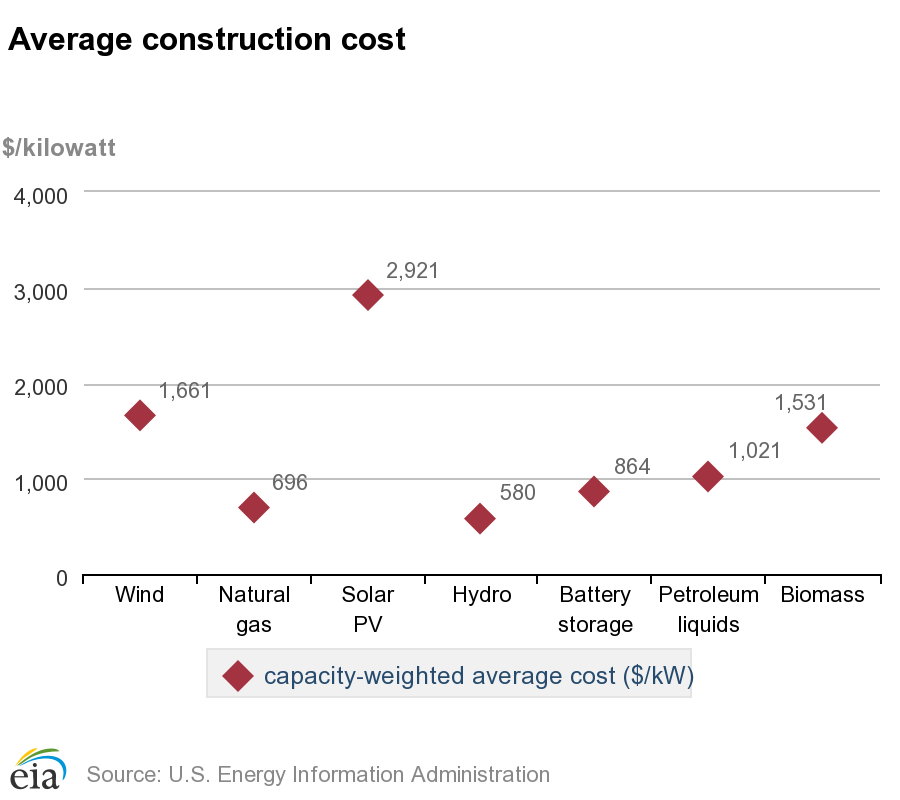Are the Batteries Coming?
Battery storage has become the latest fad among the energy industry. Lawmakers in states like California, New York and Oregon are busying themselves by crafting mandates requiring their states to invest in battery storage technology, but how affordable is battery storage?
Not very.
The problem with battery storage is twofold. One, the batteries need to be charged somehow, which increases the cost of stored electricity relative to other technologies, and two, batteries are only able to store relatively small amounts of electricity.
Figures from the Energy Information Administration demonstrate the cost of technologies built in 2015. As you can see, battery storage cost $864 per kilowatt hour, meaning solar plus storage, for example, would be nearly 5.5 times more expensive than natural gas.
The cost of battery storage has come down considerably since 2015, and it will likely continue to fall in the future.
However, battery storage still requires electric companies to pay twice, once for the electricity generation technology, whether it’s wind or solar, and again for the batteries, making it difficult for it to be competitive with other energy sources.
For the time being, anyone saying we should be mandating storage is advocating for us to adopt a premature technology that will probably be outdated in five years.
Second is the problem stemming from batteries only being able to store small amounts of energy.
Elon Musk made headlines when he tweeted that he could help solve South Australia’s blackout problem by installing 100MW of battery storage. The problem is this only accounts for about 3.3 percent of South Australia’s peak power demand.
In all, the battery pack could provide electricity to about 5 percent of South Australia (non-peak) for about an hour.
In conclusion, battery storage is still a premature technology, which is why Oregon’s Pacific Power found that “energy storage is not cost effective in any modeled scenario.”
State level mandates requiring battery storage are like mandating that we all purchase floppy disc computers to hoard them for later.